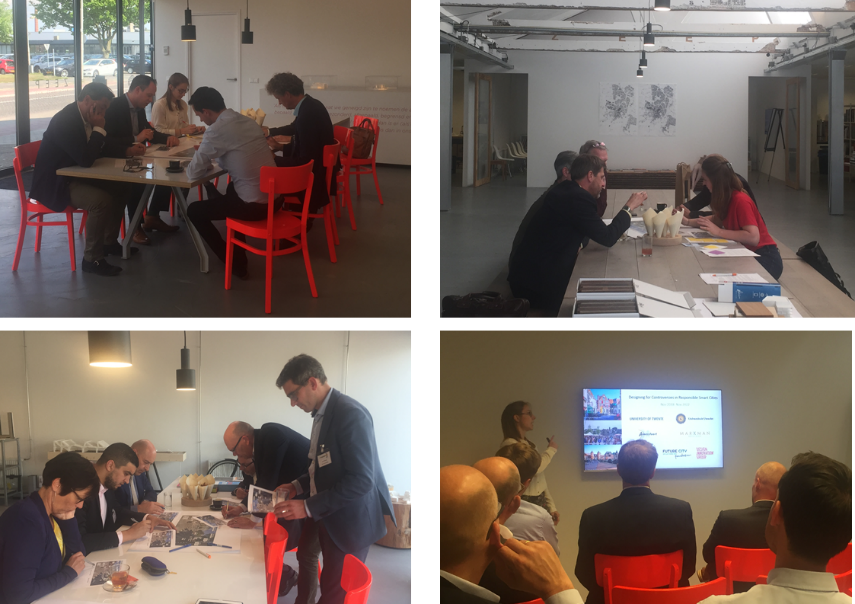What do people dream of when thinking about smart cities and technology? And what are their worst nightmares? We asked these questions during the Real Estate Forum event that took place in Amersfoort on May 29th. A diverse and inspiring group of 20 participants belonging to the local government, housing associations, and real estate developers imagined smart city scenarios with us, leading to interesting reflections!
If participants had a free pass to use technology as they wished, they would:
· Increase the connection between people and the city: self-driving cars should not be merely developed for the sake of efficiency. They should be used to improve traffic routes so children can play outdoors in the streets.
· Use data to inform citizens and make predictions: instead of being overloaded with information, technology allows for proper communication so citizens have insights into what is going on in the city, and they can make informed decisions. Furthermore, what if algorithms and sensors helped us to predict undesirable events to make us more efficient and improve our quality of life? We already use applications to predict rain so… why not applying them in other areas?
· Use technology in the city to contribute to the circular economy: sensors can collect data to minimize urban waste and pollution.
However, what would be the associated nightmares?
· Discrimination: what if certain neighborhoods feel discriminated because of these measures? Who will determine who benefits from these measures?
· Exaggerated reactions to insights: what if providing too many insights makes certain issues unrealistically enlarged?
· Lack of surprises: another recurring topic in the workshop was the danger of defeating the main purpose of living in the city. By overly measuring everything, there is no room to encounter the unexpected and embrace surprises. Why do we live in cities if everything is predictable?
· Lack of innovation: with an achieved circular economy, we might miss an incentive to improve since any innovation would break the ‘perfect’ circular system.
This is just a sneak preview of some of the results we gathered during the workshop. We are currently working on a research report and publications about it, and on the next research intervention so…. Stay tuned!
We would like to thank the Future City Foundation for inviting us to give this workshop.
